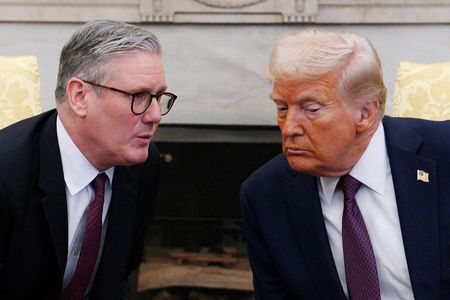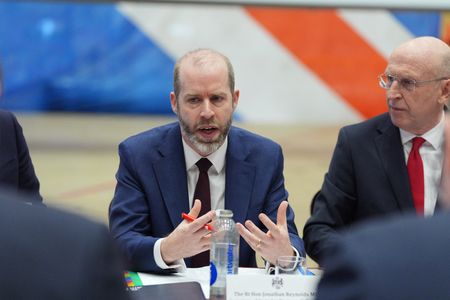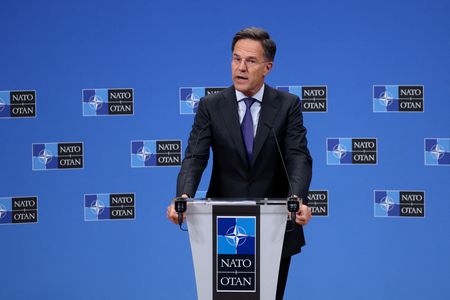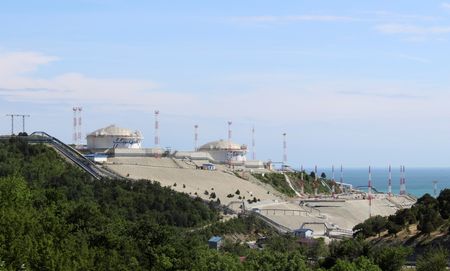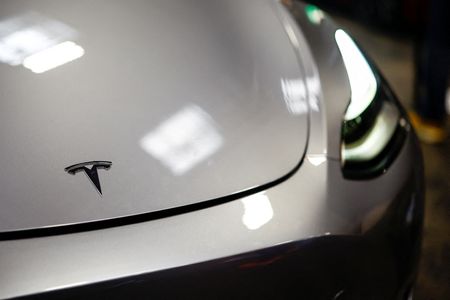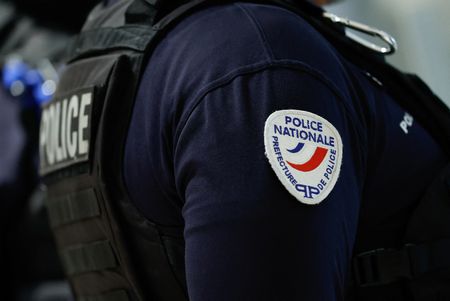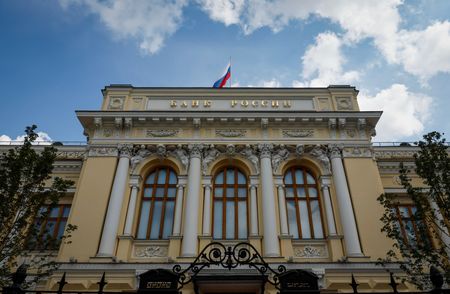By Sachin Ravikumar and Sarah Young
LONDON (Reuters) – Britain is still hopeful that any tariffs imposed by U.S. President Donald Trump will be reversed shortly, if the two sides can agree the outline of a new economic partnership, its business minister said on Tuesday.
Britain had sought to avoid Trump’s global tariff plan by offering to more closely align with Washington on areas such as technology and artificial intelligence. But business minister Jonathan Reynolds said Trump now appeared to want to impose levies on every country before discussing individual exemptions.
He said he hoped those levies, due to be announced on Wednesday, would be removed once the two sides agreed terms.
“I believe that the framework of an agreement is certainly in place,” he told the BBC. “We could sign heads of terms on that, and then talk about the detail over a specific timescale that would be to the U.S.’s satisfaction going forward.
“Whether the U.S. is willing to come to agreement with countries is a decision for the U.S., but I believe the work we have done has made that possible.”
Prime Minister Keir Starmer described the talks as “well advanced”.
Unlike the European Union and other major economies, Britain has not retaliated over U.S. tariffs. Reynolds indicated again that London would try to avoid an escalation, saying British companies supported its “calm-headed approach”.
LIGHT TOUCH
As part of a deal, the government has considered softening the impact of its digital services tax on technology companies, as Trump has claimed this is discriminatory against U.S. companies.
Britain has also adopted a light touch to AI regulation that is more closely aligned with the United States than with the EU, a policy designed to attract investment from big tech companies and international investors.
Britain has the third-largest AI market globally, ranking behind only the United States and China. It is home to companies including DeepMind, owned by Google, and BenevolentAI.
But Reynolds said there were red lines to the negotiations, highlighting “sensitive areas” that it would not discuss, such as food standards.
Reynolds said Britain had a higher chance than other countries of securing an exemption, and he remained hopeful that a deal would lead to tariffs being dropped in weeks or months, saying: “That would be my objective.”
Downing Street said Starmer and Trump had discussed the “productive negotiations” towards what they called a UK-U.S. economic prosperity deal on Sunday.
Asked by Sky News if he felt played by the U.S., Starmer said on Tuesday that the two countries were very close allies, and would remain so.
Global markets have been roiled by Trump’s plan, which has stoked fears of an economic downturn. Trump has said tariffs are needed to shrink a $1.2 trillion global goods trade deficit.
Reynolds said it was not possible to give a timescale on when any reversal could come in, but warned London would have to consider retaliatory tariffs if it took too long.
“The longer we don’t have a potential resolution to that, the more we will have to consider our own position,” he said.
(Additional reporting by Paul Sandle. Editing by Kate Holton and Mark Potter)

